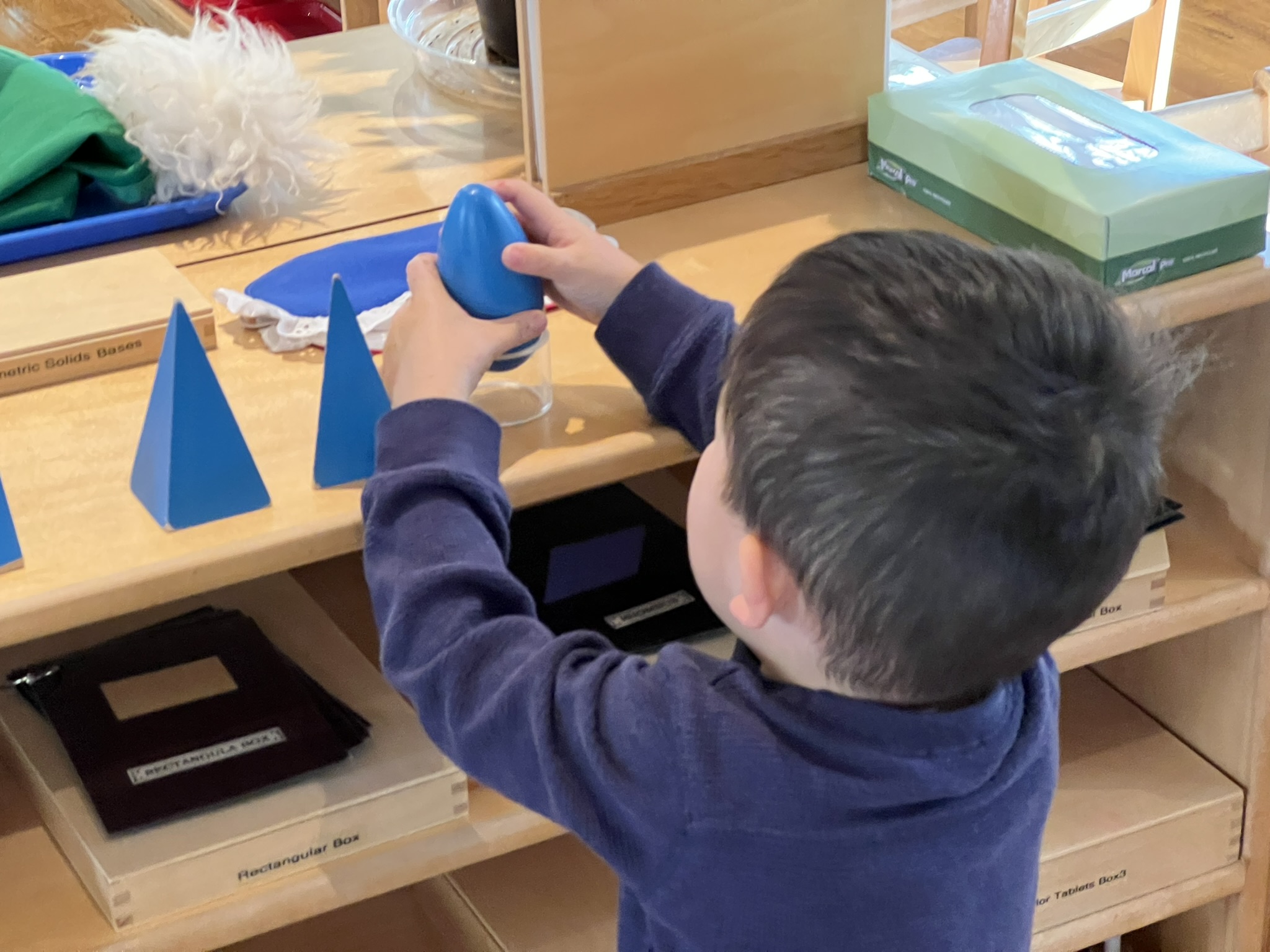
Why is Independence So Important in Early Childhood?
Children are innately driven to learn how to function in the world. The more they can do for themselves, the more capable, confident, and motivated they become. Dr. Maria Montessori observed that true education is about preparing children to navigate life — not just academics.
Supporting independence builds:
-
Self-Esteem: Children gain confidence by accomplishing real tasks.
-
Resilience: By attempting things on their own, they learn problem-solving and perseverance.
-
Motor Skills: Dressing, pouring, and cutting develop fine and gross motor coordination.
-
Emotional Maturity: Independent children tend to feel less frustration and anxiety because they feel capable.
At its core, independence is about dignity. Every time we say “let me do that for you” without necessity, we inadvertently communicate that the child is not capable — even when, with time and patience, they could master the task.
How We Foster Independence at School
In our Montessori classrooms, you’ll see:
-
Children preparing their own snacks, pouring drinks, and cleaning up after themselves.
-
Practical Life activities like spooning, transferring, buttoning, and tying that build everyday skills.
-
Children choosing their work and deciding when to move on, within the guidelines of the prepared environment.
-
Materials that are self-correcting — allowing children to recognize and correct mistakes independently.
This careful balance of freedom within structure allows children to grow confident in their abilities.
How You Can Foster Independence at Home
Here are some areas where you can support your child’s independence, starting today.
1. Self-Care
Allow children to:
-
Dress and undress themselves (even if the socks are backwards!)
-
Brush their own hair and teeth
-
Put on their own shoes (Velcro or slip-ons help in early years)
-
Wipe their face after meals
Provide a low mirror, brush, and washcloths in a designated self-care space.
2. In the Kitchen
Invite your child to:
-
Pour their own water from a small pitcher
-
Prepare simple snacks (spreading peanut butter, peeling a banana)
-
Help with cooking (washing vegetables, stirring batter)
-
Set the table for meals
Equip your kitchen with:
-
A learning tower or step stool (brands like Guidecraft or Little Partners)
-
Child-sized utensils, such as the Curious Chef knife set for safe cutting
3. Their Belongings
-
Give them a designated place for coats, shoes, and backpacks — a low hook or cubby makes items accessible.
-
Encourage them to pack their own bag for school.
4. Household Chores
Young children are often eager to help with:
-
Folding small towels or washcloths
-
Watering plants
-
Feeding pets
-
Sweeping up small messes with a child-sized broom
Children as young as 2 can participate meaningfully in household routines — it just takes patience and a willingness to embrace imperfection.
Practical Tips for Success
-
Allow Extra Time: Rushing is the enemy of independence. Budget extra minutes for your child to dress themselves or complete tasks.
-
Model First: Demonstrate slowly how to perform a task, then allow them to try.
-
Break It Down: Teach complex tasks in steps — putting on socks, then shoes, then zipping the jacket.
-
Resist the Urge to Fix: Let your child struggle a bit. Only assist if frustration builds to the point of discouragement.
-
Celebrate Effort: Instead of saying “Good job,” try, “I saw how carefully you poured your own milk — you didn’t spill a drop!”
Recommended Resources
-
Books: “The Montessori Toddler” by Simone Davies is an excellent guide for creating an independence-friendly home.
-
Furniture: Sprout Kids offers modular, child-sized tables, chairs, and shelves perfect for home use.
-
Toys & Tools: Lovevery play kits include tools and activities designed for practical life skills at home.
Reflection for Parents
Think about your daily routine. Where could you step back and let your child take the lead — even if it’s a little slower or messier? Start small, and celebrate the process.
By fostering independence at home, you’re giving your child a precious gift — the belief that they are capable, competent, and trusted.
Warmly,
The Rockridge Montessori Team

Recent Comments